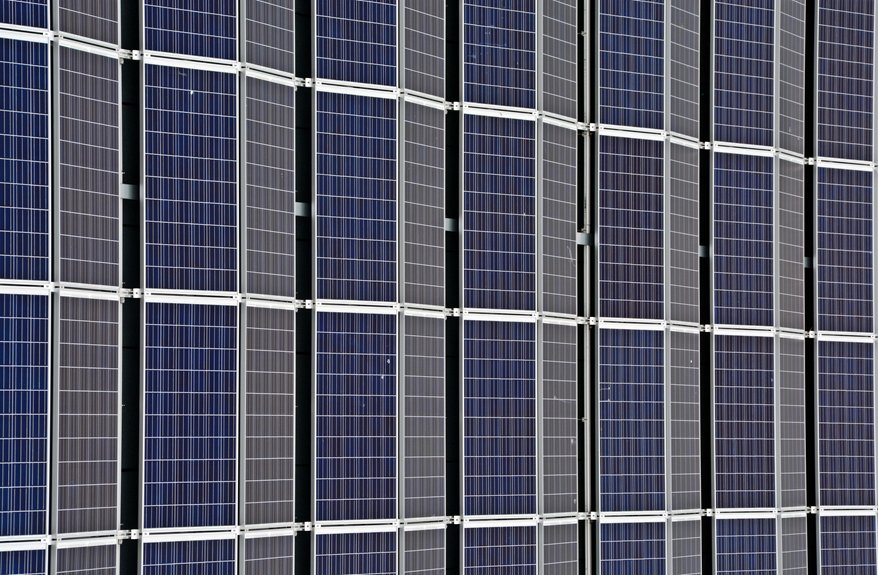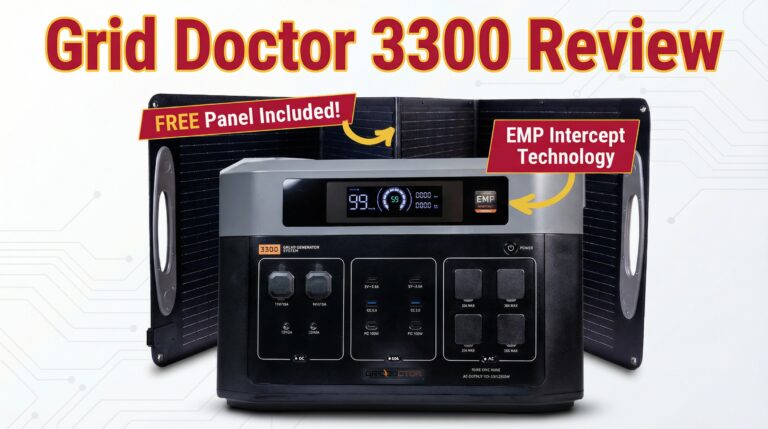
When a power grid collapse happens, it’s essential to keep your home running smoothly. Start by evaluating your energy needs, identifying which appliances are important for your daily life. Once you know your wattage requirements, you can explore alternative energy sources and backup systems. But that’s just the beginning. There are several practical steps you can take to guarantee you’re prepared for such an event. Let’s explore how you can take control.
Assess Your Energy Needs
How can you effectively determine your energy needs during a power grid collapse? Start by listing essential appliances and devices you rely on daily. Consider items like your refrigerator, lights, and medical equipment.
Next, check their wattage ratings, usually found on the appliance labels or in the user manuals. Once you have this information, calculate the total wattage required for daily use.
Don’t forget to account for surge power needs, especially for motors that start up. Prioritize your list based on necessity; this’ll help you focus on what you absolutely need to power.
Finally, evaluate how long you’ll need these devices running. With this information, you can make informed decisions about energy sources and usage during a crisis.
Invest in Alternative Energy Sources
Once you’ve assessed your energy needs, it’s time to contemplate how to meet them if the grid goes down. Investing in alternative energy sources is a smart move.
Solar panels are a popular choice; they harness sunlight to generate electricity and can power your home independently. Wind turbines are another option, especially if you live in a breezy area.
You might also consider portable generators fueled by biofuels or propane, which can keep essential appliances running. Don’t forget about energy storage systems, like batteries, to store excess energy for later use.
Build a Reliable Backup Power System
Building a reliable backup power system is essential for maintaining your home’s energy supply during a power grid collapse.
Start by selecting a generator that meets your power needs. Consider options like portable generators or standby generators, depending on your budget and space.
Next, make certain you have enough fuel stored safely to keep your generator running. Solar panels can also be a great addition, providing a renewable energy source.
Don’t forget to invest in a transfer switch to safely connect your generator to your home’s electrical system.
Regularly test your system to verify everything works when you need it.
With a well-planned backup power system, you’ll be prepared to keep your lights on and your home running smoothly.
Create an Emergency Power Kit
Creating an emergency power kit can make all the difference when the lights go out during a power grid collapse.
Start with a reliable flashlight and extra batteries to guarantee you can navigate in the dark. Include a portable phone charger and a power bank for essential communication. Stock up on non-perishable food items and bottled water to stay nourished.
Don’t forget a multi-tool for various tasks, and a first aid kit for emergencies. Consider adding a battery-operated radio to stay informed about the situation.
Finally, keep blankets and warm clothing handy, especially if the outage occurs in colder months.
Stay Informed and Monitor Alerts
Having an emergency power kit is a great start, but staying informed during a power grid collapse is just as important.
You need to keep an eye on local news, weather updates, and emergency alerts. Use a battery-powered radio or your smartphone to stay connected to crucial information. Sign up for local alert systems to receive real-time updates about outages and recovery efforts.
Social media can also be a valuable tool, but verify information from trusted sources to avoid misinformation. Additionally, consider joining community groups focused on preparedness; they can be a great source of support and information.
The more informed you are, the better you can respond to the situation and make decisions that will keep you and your loved ones safe.
Develop a Family Communication Plan
How will you guarantee your family stays connected during a power grid collapse? Start by establishing a clear communication plan.
Designate a meeting point where everyone can gather if separated. Make certain each family member knows how to reach this location.
Next, choose a reliable method for communication, such as text messages or walkie-talkies, since phone lines may be down. Create a contact list with important numbers, and encourage everyone to memorize it.
Regularly practice your plan to make sure everyone knows their role.
Finally, consider using a signal system, like a whistle or flashlight, to communicate over distances.
With a solid plan in place, you’ll increase your chances of staying connected when it matters most.
Practice Power Conservation Techniques
Mastering power conservation techniques is essential for surviving a power grid collapse. Start by unplugging devices when they’re not in use; even standby mode consumes energy.
Use LED bulbs instead of incandescent ones—they’re more efficient and last longer. Limit your appliance use to off-peak hours and prioritize essential items like refrigerators and medical equipment.
Seal windows and doors to reduce heating and cooling costs, and consider layering your clothing for warmth instead of cranking up the heat.
When it’s light outside, take advantage of natural sunlight instead of relying on artificial lighting.
Finally, gather your family to establish routines that emphasize energy-saving practices, ensuring everyone plays a part in conserving power during emergencies.
Conclusion
By taking proactive steps to assess your energy needs and invest in alternative power sources, you can effectively navigate a power grid collapse. Building a reliable backup system and creating an emergency kit guarantees you’re prepared for anything. Staying informed and practicing power conservation techniques will help you adapt and thrive during challenging times. With a solid family communication plan in place, you’ll not only keep the lights on but also foster resilience in your household.






